Chickens
Our chickens are raised out on pasture during the growing season from April to October. They live in mobile shelters out in the field which are moved every day to give the chickens access to fresh grass and move them off of the previous day’s manure. This access to sunshine, fresh air, forage, and insects, produces a much healthier chicken with much higher levels of vitamins, proteins, and omega-3 fatty acids than conventionally raised chicken. Not only does this way of raising chickens produce a healthier and happier bird, but it is also far more delicious and flavorful than any conventionally raised or non-pasture raised chicken you can buy. Our chickens are free of any antibiotics, drugs, hormones, and GMOs. They are 100% organic-fed, pasture-raised, free range chickens.
We get our chicks at just one day old – from there they are raised in a cozy brooder for the first three weeks of their lives. The brooder is meant to imitate the warmth and shelter that a mother hen provides. Once the chicks have feathered out, they are strong enough to move out to pasture to their permanent home in our “Joel Salatin” style field pens where they can eat grass, scratch for bugs, and enjoy the fresh air and sunshine.
The chickens help fertilize our pastures. As they are rotated through the land, they leave behind huge amounts of manure, feeding the soil and plant life. This helps produce a much healthier and diverse pasture that, as a result, starts growing earlier in the year and produces lush grasses, forbes, and legumes for a longer season.

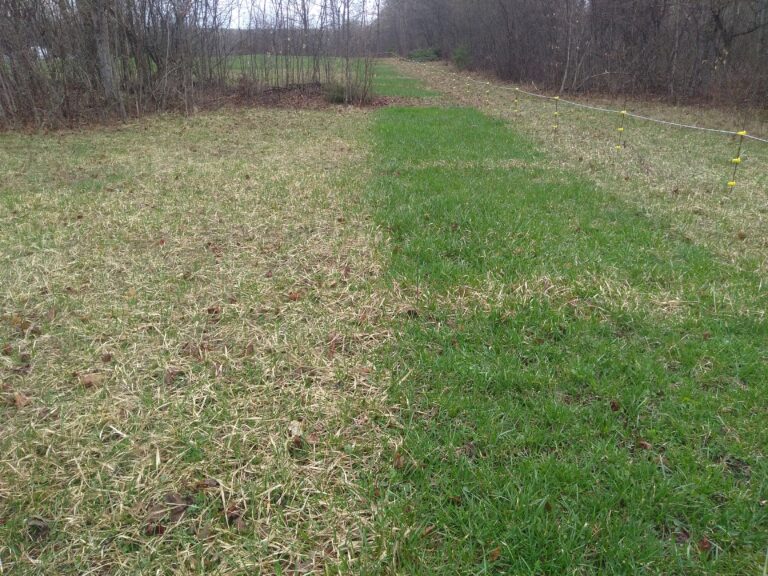
Ducks
We raise Muscovy ducks on the farm. Muscovies are funny looking ducks native to Central and South America. They are actually tree ducks, not descendants of the mallard duck like all other domestic species of duck. They are incredible foragers, especially of bugs, and do amazing work reducing the pest population. They actually got their name from their reputation for eating mosquitos.
We raise our ducks out on pasture during the summer months. They have the opportunity to eat grass, legumes, and bugs all day within their electric fence that keeps the predators out.
Muscovies are a very unique duck. They have very lean, dark red meat and much less fat than the standard pekin duck. Their meat is delicious and healthy, especially when they are raised outdoors with a mixed diet, as ours are.
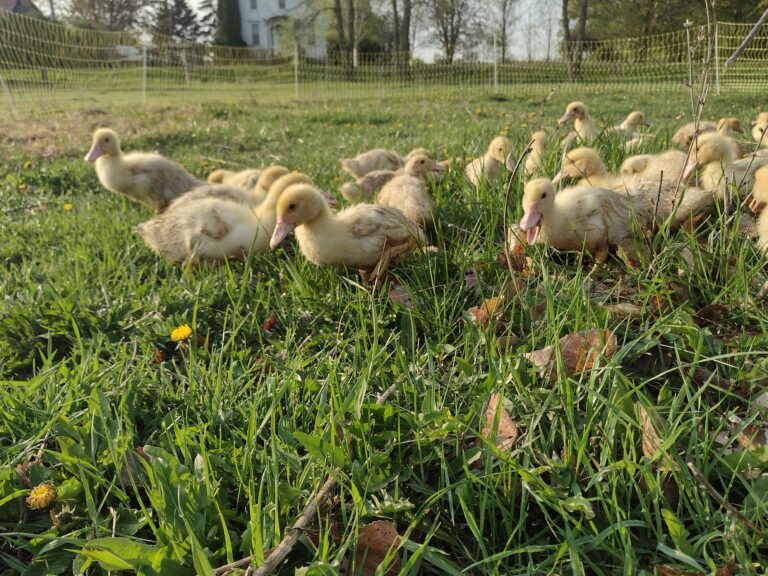
Pigs
Pigs are intelligent and unique animals, and the hardest workers on the farm. They have incredibly strong stouts like miniature plows that they use to till the soil in search of bugs and roots. Using their noses, they uproot small trees and disturb the seed bank, bringing up seeds that otherwise could remain dormant for countless years. Through their disturbance they help thin out the brush, plant seeds, and fertilize the soil as they go. At the farm we use the pigs to convert poor quality brush and forest areas to a more productive pasture/brush/forest system.
Our pigs live outdoors year-round in the brush and forest areas of the farm. They get to enjoy a mix of pasture and small shrubs to browse on, as well as roots and grubs from under the soil, and some fallen seeds from overhead trees. Pigs thrive in this kind of environment – similar to where they would naturally live in the wild. We rotate the pigs through this area using rotational grazing. The pigs get a fresh paddock to chew and churn up every 5-10 days. This provides them with fresh grazing and foraging, and moves them away from their manure, keeping them healthy and free from parasites.
Pork raised this way has much higher levels of vitamin D and a higher omega-3 fat profile, creating a much healthier product. The constant exercise the pigs get helps build intermuscular fat, giving the pork a delicious marbling and exceptional flavour.
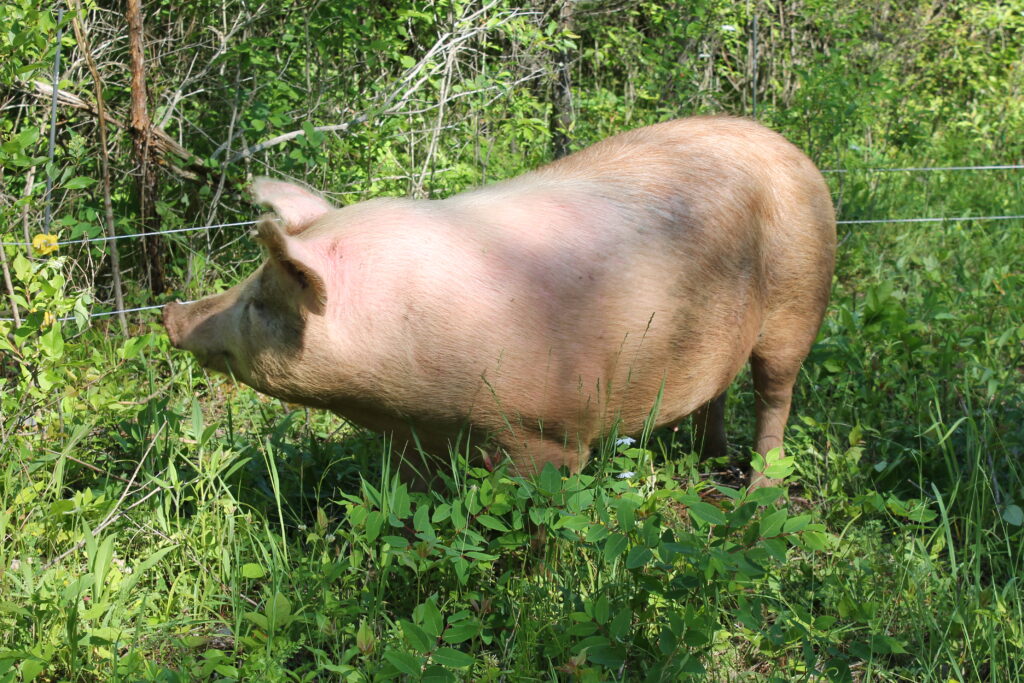
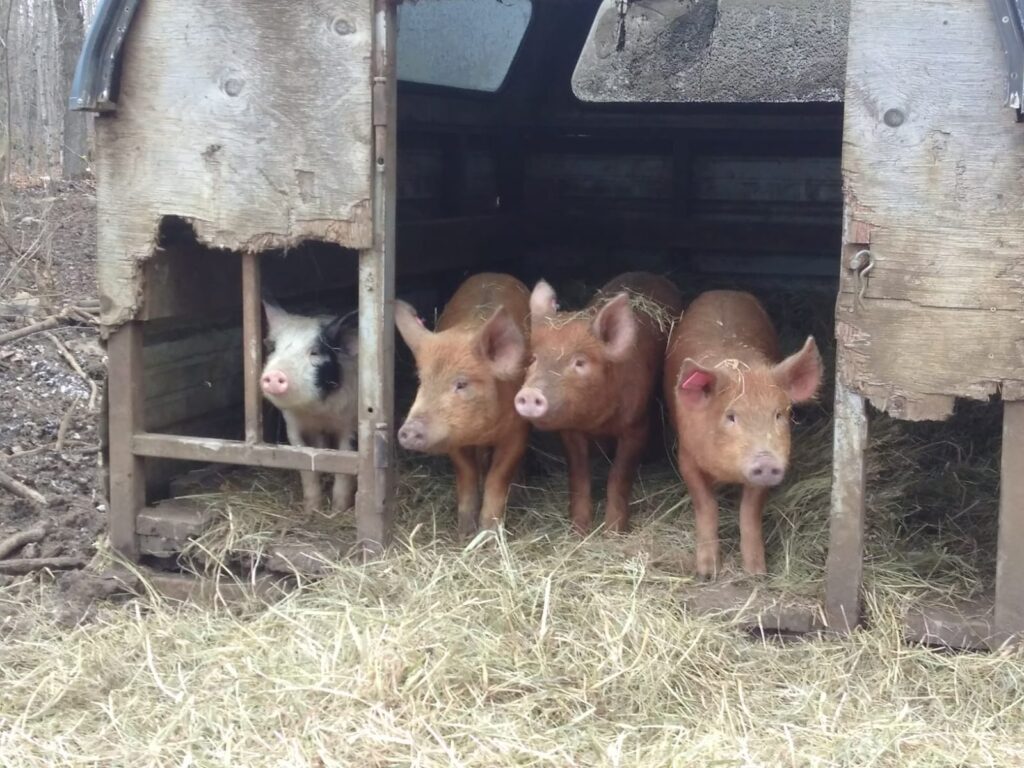
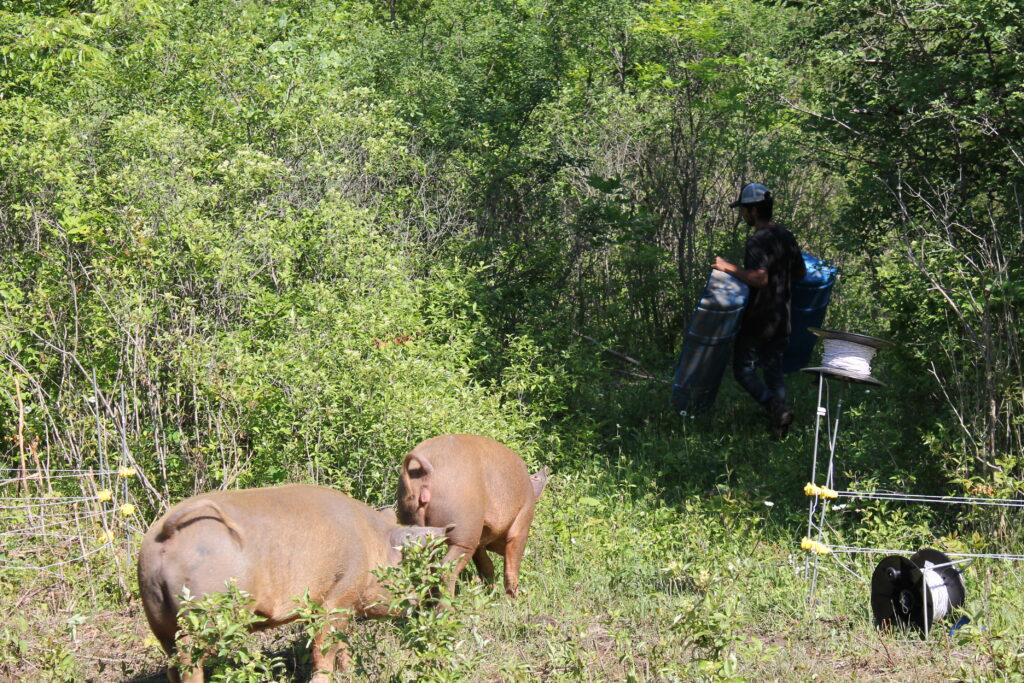
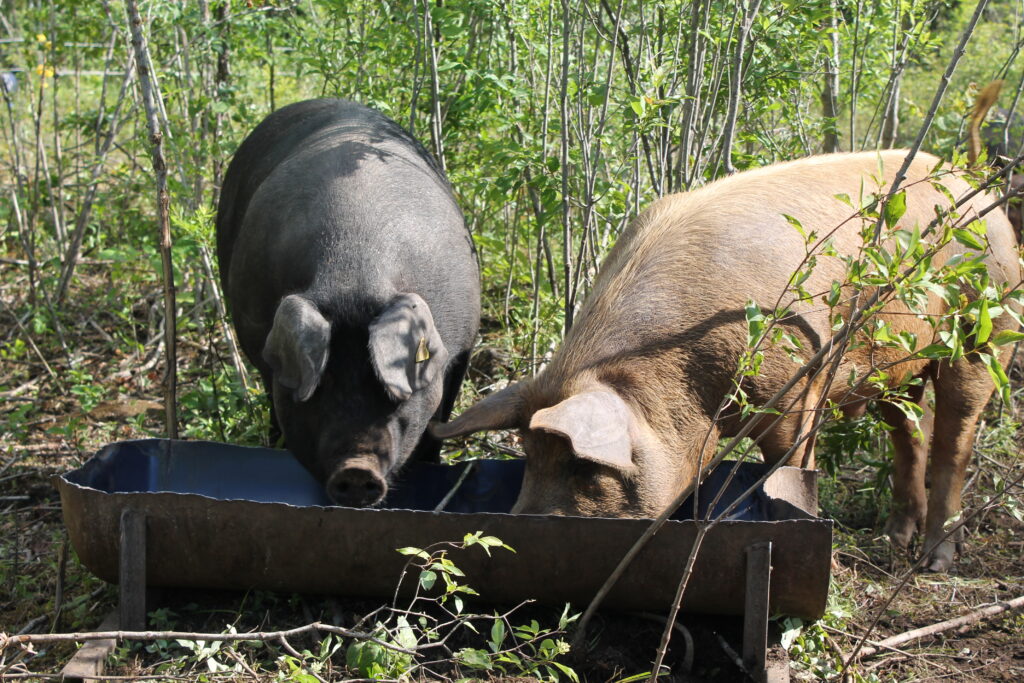
Goats
The goats are the brush and bramble clearers of the farm. They play an essential role in thinning out encroaching forest and trimming down brush and scrubland to help turn it into a more productive pasture system. Our goats are moved regularly during the growing season using rotational grazing practices. The paddock moves ensure the goats are always provided with fresh browse to eat. At the same time, they are leaving fertilizer in the form of droppings in the previous paddocks. This form of management insures the goats always have the best feed available to them, and keeps them healthy by breaking parasite cycles.




